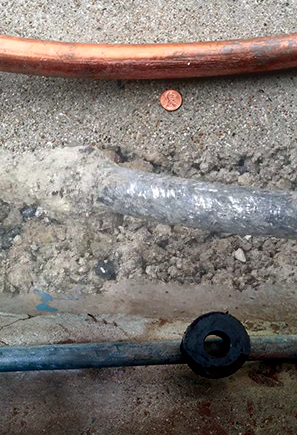English - Español
About the Program
History
Trenton Water Works (TWW) is committed to providing its customers with a safe, clean and reliable supply of drinking water. The risks and health effects of lead exposure are well documented, particularly to infants, young children, pregnant women as well as others with serious health conditions or compromised immune systems. Like many other aging cities and water systems, the TWW water distribution system is comprised of older houses and buildings, many of which have lead service lines (LSLs). As water travels through the LSLs, the corrosion of the lines adds lead into the treated water delivered to those customers. TWW’s source water from the Delaware River, treatment plant, and reservoir is lead-free, and therefore these existing LSLs and lead solder in copper plumbing are the causes of lead in drinking water delivered to customers.
Due to lead action level exceedances in 2017 and 2018, TWW was required to commence a Lead Service Line Replacement Program. Rather than replacing only the TWW-owned portion of the service line, TWW applied for and obtained state funding through the New Jersey Water Bank to assist the property-owner in reducing the cost to also replace the portion owned by the property-owner.
Planning for Lead-free 2031
Nearly 10,000 LSLs have been replaced so far. Additional LSLR program phases will start in 2023 with the goal of removing all LSLs ahead of the 2031 New Jersey legislative requirement.
TWW has updated their inventory of LSLs and determined that there may be up to 20,000 LSLs remaining in the TWW service area. However, at most addresses, the material of the service lines on the homeowner-owned side of the line is still unknown. Therefore, as an essential step to planning future LSLRP work, TWW is embarking on a rigorous program to determine the material of the service line inside customers' homes. To assist TWW with this task, please follow the simple steps below.






